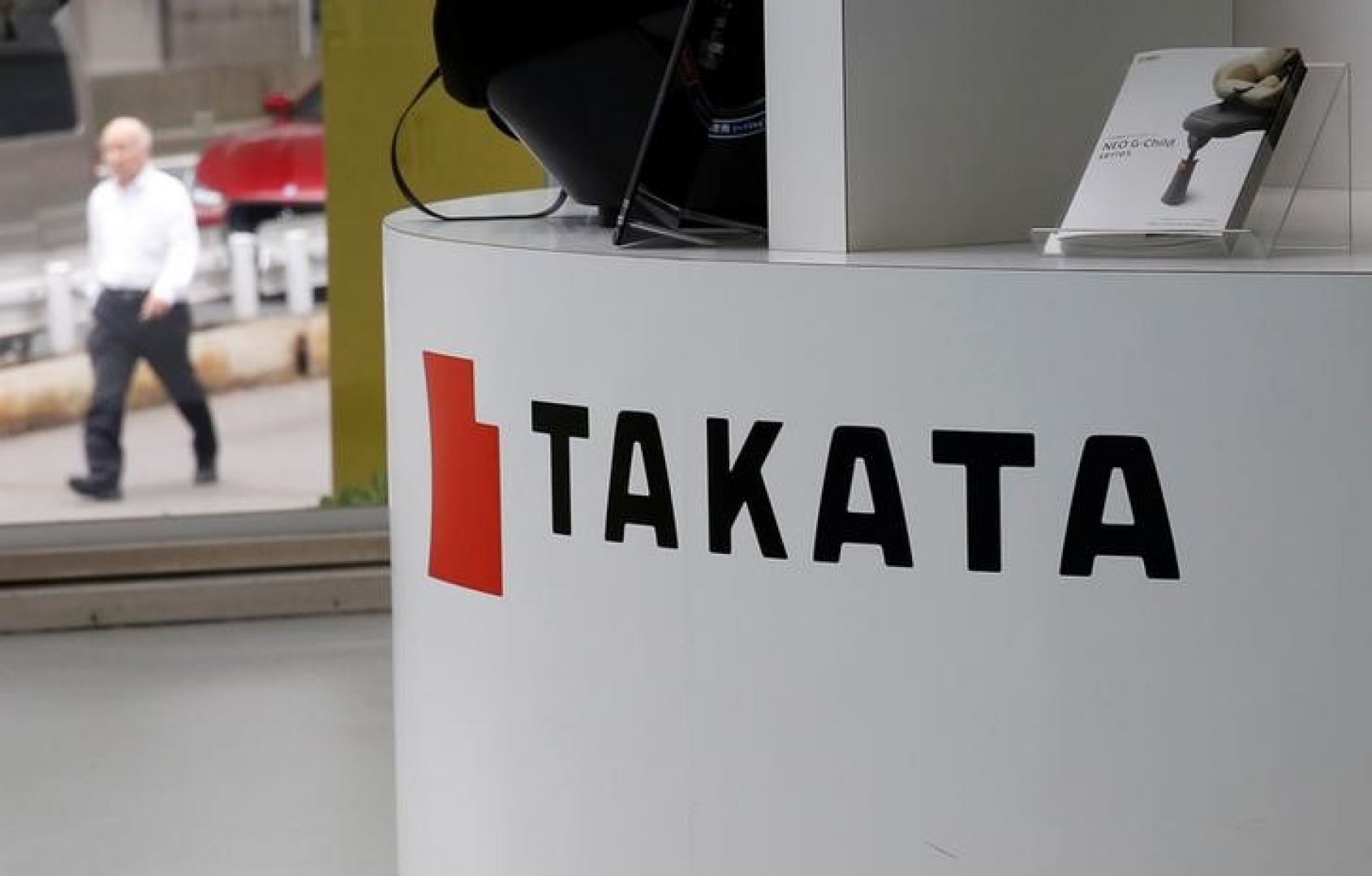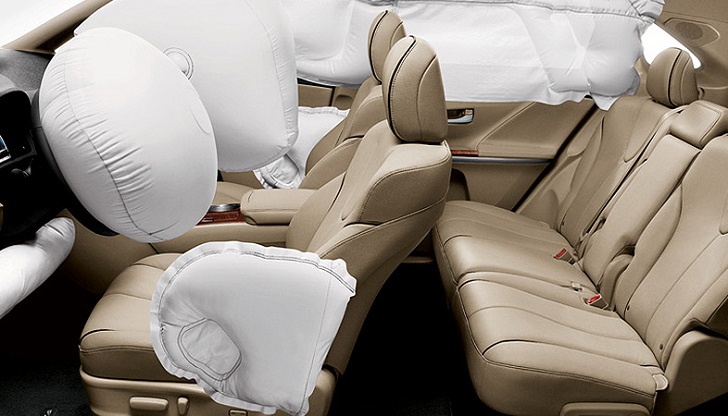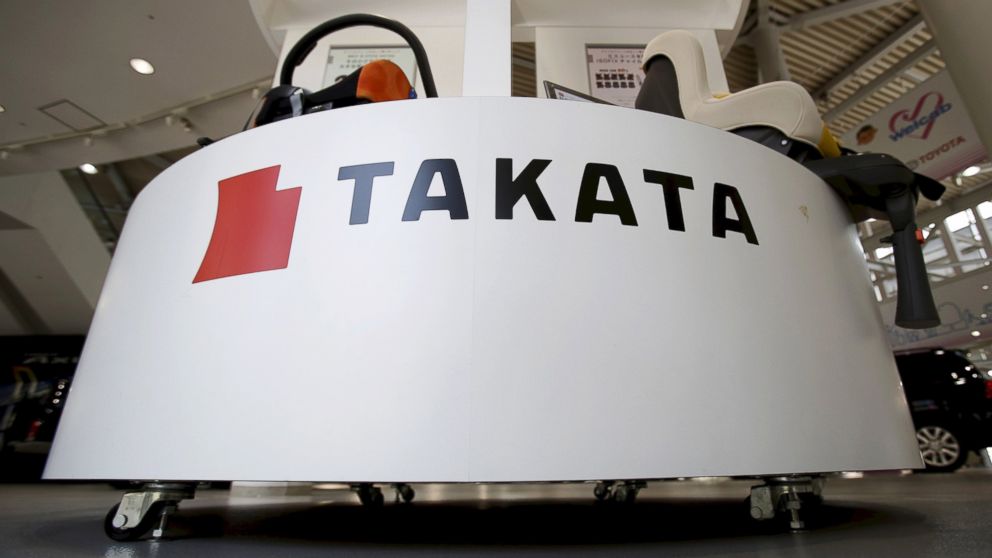
Takata has ruled out using bankruptcy as a way of mitigating liabilities from its record airbag recalls and is instead seeking buyers that could take a controlling stake and carry the company through its safety crisis, according to a person with knowledge of the restructuring process.
Lazard, Takata’s financial advisor, will meet manufacturers as well as financial firms with the aim to find buyers by the fall, according to the person, who asked not to be named because the discussions are private.
Takata’s plan is to remain listed and maintain its core seat-belt, airbag and steering-wheel businesses, while selling off non-core operations, the person said. Company spokeswoman Akiko Watanabe declined to comment.
Any Takata suitor will be betting it can still make a return even after resolving claims from automakers, which until now have shouldered the vast majority of the costs of replacing air bags tied to the auto industry’s unprecedented safety crisis. Recalls of the devices, which can deploy with too much force and spray metal and plastic at passengers, are expanding by as much as 40 million units in the U.S., after 13 fatalities worldwide.
“There is no advantage and no one will benefit from turning Takata around through bankruptcy in this case,” said Taketoshi Tsuchiya, a credit analyst in Mizuho Financial Group’s fixed-income group in Tokyo. “Automakers can’t say they won’t go through with the recalls because Takata filed for bankruptcy. They have to continue paying for the costs on their own without Takata.”
New Management
In exchange for injecting capital, the founding family’s stake will be diluted, the person said. The company has targeted having new management in place this year, replacing executives including President Shigehisa Takada, the person said. A consortium of investors is also an option to raise funds.
Talks with potential buyers are at the preliminary stage and no offers have been made, the person said. Takata is negotiating with customers led by Honda over how much of the multi-billion dollar recall bill it will have to pay.
Takata is willing to be flexible with the restructuring plan as long as its top objective of supplying replacement air bags in a stable manner is met, the person said. Japan last week ordered the replacement of air bags in 7 million more vehicles, expanding the total number recalled in the country to about 19.6 million. Regulators earlier this month forced automakers to roughly double the number of air bags recalled in the U.S., to as much as 69 million.
“Now, the focus is on how Takata and automakers share the costs of air-bag recalls,” said Shintaro Niiimura, an analyst with Nomura Holdings Inc. “If Takata has to owe the majority of it, it would make it difficult for them to secure enough funds.”




